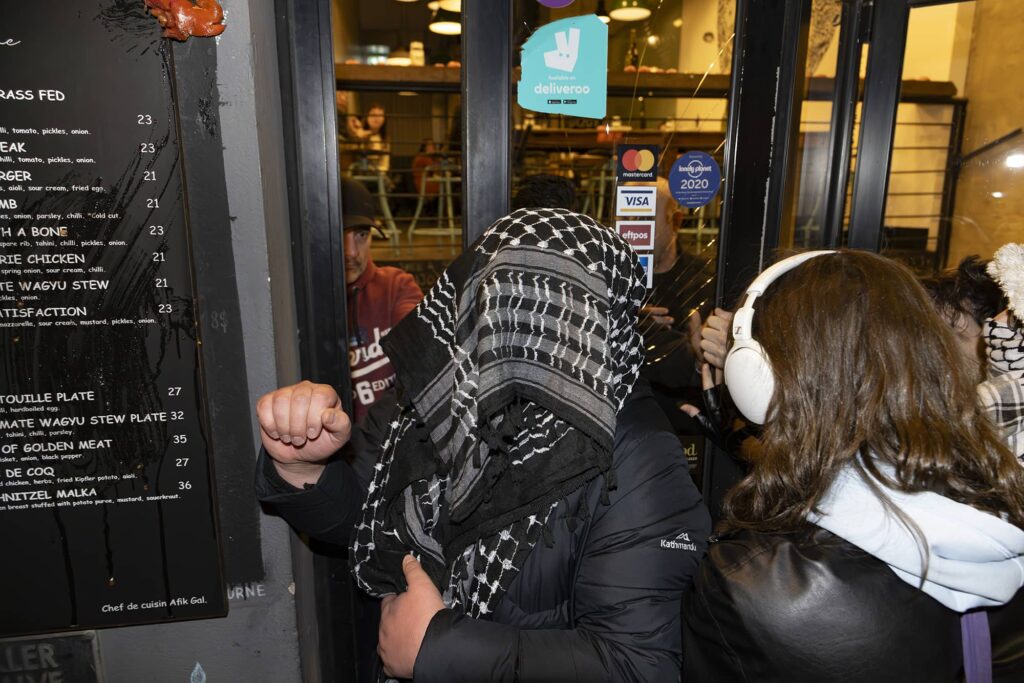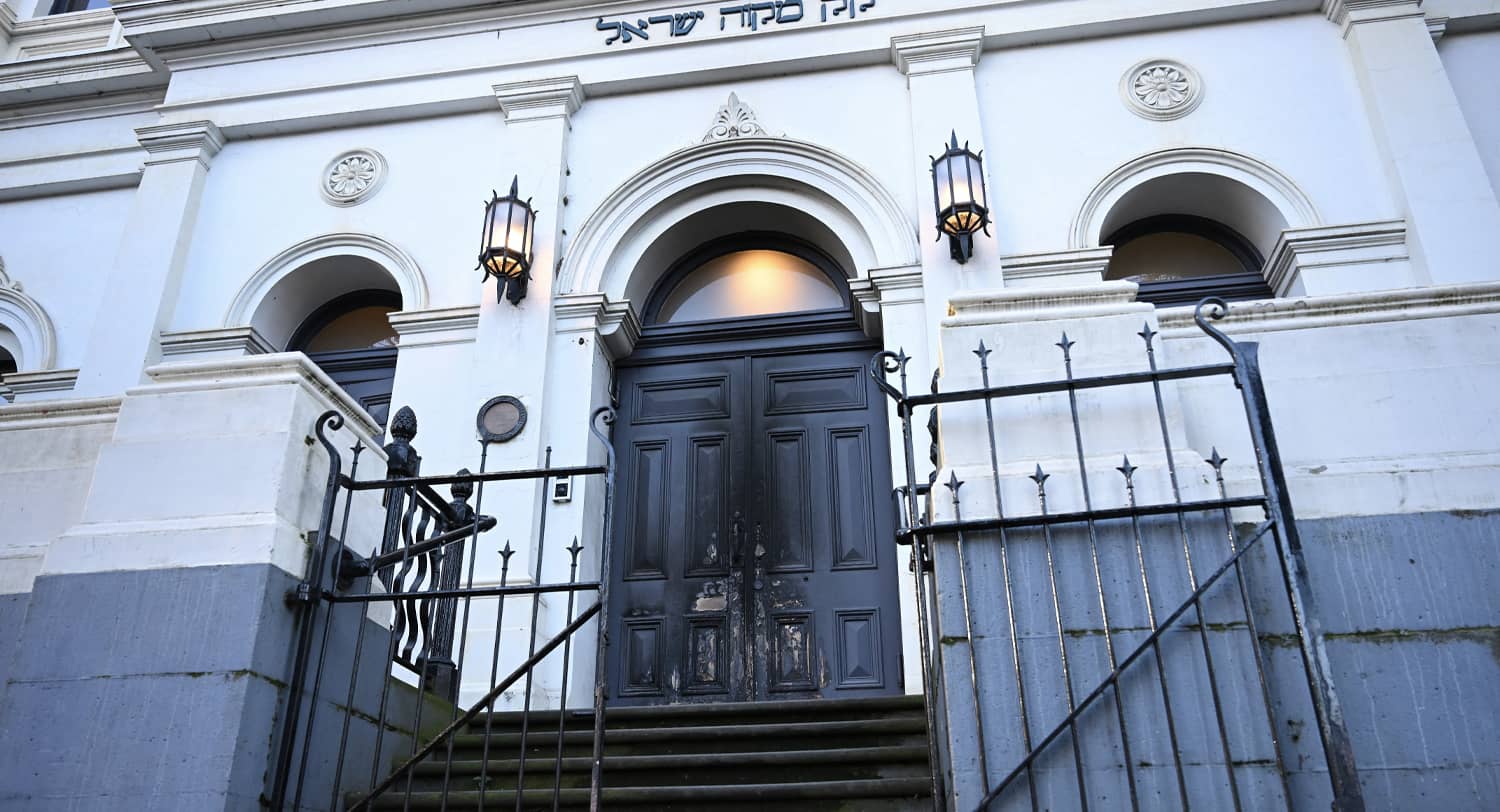Australia, for decades a global example of peaceful multicultural coexistence, now finds itself confronting a deeply uncomfortable truth. Beneath the sun-soaked optimism of our cities lies a rising tide of tension and disharmony, triggered not by homegrown animosity, but by foreign agendas exploiting the freedoms of a Western liberal democracy.
At the center of this turbulence is a sophisticated campaign masquerading as grassroots solidarity with Palestinians but which, in reality, is almost certainly being funded by actors linked to Iran and Qatar. In universities, on the streets, and increasingly within the arts and creative sectors, this movement has sowed confusion, fear and social division, targeting Australia’s Jewish community, a group already familiar with the dangers of being both hyper-visible and politically marginal.
A Distorted Echo of Dissent
Pro-Palestinian encampments and mass demonstrations give the impression of an overwhelming public consensus. But that view is superficial. It is more akin to a loud minority. However, the scale and coordination of these protests suggest something far more organized than organic student protests.
Intelligence sources and policy analysts have noted the presence of external funding, messaging support, and ideological steering from entities misaligned with Australia’s democratic values.
This includes Iranian-affiliated groups known for their disinformation campaigns and Qatari-backed networks, often tied to Islamist organisations operating under the guise of charitable or educational causes. Their goal is not simply to criticise Israel, a legitimate endeavour in any open society but to erode trust in democratic institutions, inflame community tensions and establish a climate of fear, mistrust and ultimately political and social instability.
What begins as a poster on the lawns quickly becomes a test of institutional support for freedom of speech and thought and then morphs into investigations of student and academic intimidation. For Australia’s Jewish community, small in number but a part of the Australian story since arriving as convicts on the first fleet, this has become an existential crisis.
Perception as Reality: The Chilling Effect
In a nation of over 26 million, Australia’s Muslim population exceeds one million and continues to grow. This contrasts with a Jewish population estimated at fewer than 150,000. The disparity is not just demographic, it is political and cultural as well. The amplification of anti-Israel sentiment across campuses and social media platforms, especially when couched in the language of decolonization and liberation, creates a distorted perception of societal consensus.
The truth is far more nuanced. While the overwhelming majority of Muslim Australians seek peaceful coexistence and shared prosperity, a vocal and radicalized minority is using the Israel-Hamas war to further an ideological pursuit contrary to Australia’s values. Add people from both the far left and the far right who are using the conflict to further their own agendas and the result is a local Jewish community that feels increasingly under siege, unable to distinguish between those acting in bad faith and genuine protest.
This fear is not theoretical. It is lived every day through online harassment, workplace harassment, hate mail, graffiti, doxing of Jewish creatives, and the ostracization of students who dare identify with the State of Israel or who simply wear a kippah or a Magen David. What makes this particularly insidious is that the perpetrators often use anti-Zionism to cloak their antisemitism, exploiting progressive language to mask regressive intentions.

The Government Response: Late But Not Lacking
To its credit, the government of Prime Minister Anthony Albanese has recognized the rising threat and responded to increasing antisemitic incidents and security concerns expressed by Jewish leaders. Legislative changes to strengthen protections against hate speech, the bolstering of community safety grants, and closer coordination with state based law enforcement agencies are all welcome measures.
But much of this response has been belated. It took the public outcry after the fire bombing of the Adass Synagogue in Melbourne, along with sustained media attention, for the government to step in. A troubling pattern is emerging: antisemitism often goes unrecognized until it can no longer be ignored. Indeed, the most recent attempted arson on the East Melbourne Hebrew Congregation on the same night that the Israeli restaurant Miznon was violently attacked by pro-Palestinian protestors meant that the government and public could no longer look away. These were no longer isolated incidents, they were violent crimes that shocked the broader community.
Nowhere was this delay more painfully felt than in the arts sector. Jewish philanthropists and creatives, long celebrated for their contributions and support to the Australian arts and literary world, found themselves named, shamed, and professionally blacklisted through orchestrated online campaigns. In several cases, private information was leaked, leading to real-world threats and police involvement. These acts weren’t mere protests, they were targeted acts of intimidation and bullying.
A Turning Point
The government recently released the 2025 Action Plan of the Australian Special Envoy to Combat Antisemitism, authored by Special Envoy Jillian Segal. It offers a comprehensive strategy to tackle antisemitism across Australian society, from education and digital platforms to law enforcement and cultural institutions.
Prime Minister Albanese lent his authority to the launch of the report by being present. Though he did not commit to implementing all the recommendations, he nevertheless acknowledged the need to take action:
“There’s a number of things in here that we are doing. There’s a number of things that can be implemented quickly. And a number of things that will require work over a period of time. Part of the recommendations is that we will receive an annual report, including an assessment of progress on these issues.”
This commitment to ongoing review and accountability is essential and the report maps out practical interventions; curriculum development, digital literacy, incident reporting frameworks, and expanded police training.
It is a serious document, but the challenge now is implementation.
The time for talking is over and the time for action was yesterday.
Social Cohesion on the Line
Australia’s multicultural model has always depended on mutual respect and trust between communities. That model is now under genuine visible strain as moderates on all sides are being drowned out by the voices of extremists. When segments of society no longer feel safe expressing their identity, walking to synagogue, sending their children to a Jewish school or camp, the problem is no longer theoretical. It is structural.
Equally, when foreign funded actors can operate freely within our borders, financing protests, intimidating students, and undermining social cohesion under the guise of activism, we are witnessing more than a free speech issue. We are witnessing a national security issue.
The Jewish community, despite its size, has long played a vital role in Australia’s intellectual, commercial, legal and cultural life. To allow it to be marginalized or made afraid is to betray the very ideals that built modern Australia: tolerance, decency and acceptance.
Looking Forward: Vigilance and Values
The Albanese Government, having now received the recommendations of the 2025 Action Plan, has the opportunity to lead not just with policy but with moral clarity. It must continue to reinforce its message that both antisemitism and anti-Zionism have no place in modern Australia, whether it comes from the far right, the far left, or from ideologically-motivated foreign proxies.
That also means challenging institutions such as local governments, universities, media outlets and arts councils who have been too quick to retreat into false equivalence or policy paralysis. Equally, silence is not abstention from the fight; it is complicity in it.
Above all, it requires us to restore a foundational principle of Australian life: that no group should live in fear because of who they are.
In this moment, we are reminded that security is not just about borders and budgets. It is about belonging. And it is the responsibility of every government not just to protect its citizens from threats but to protect them from the corrosive lie that they are alone.

